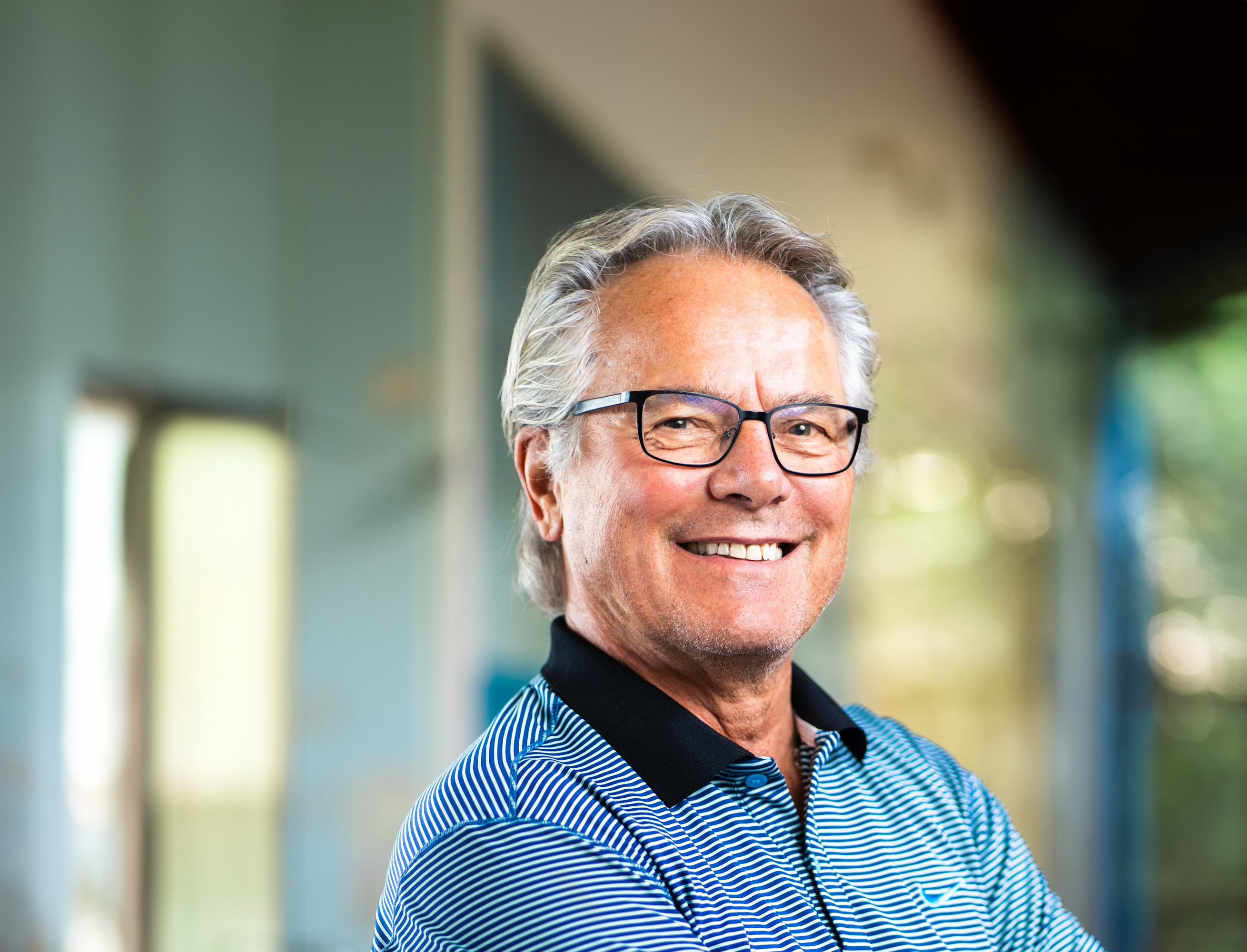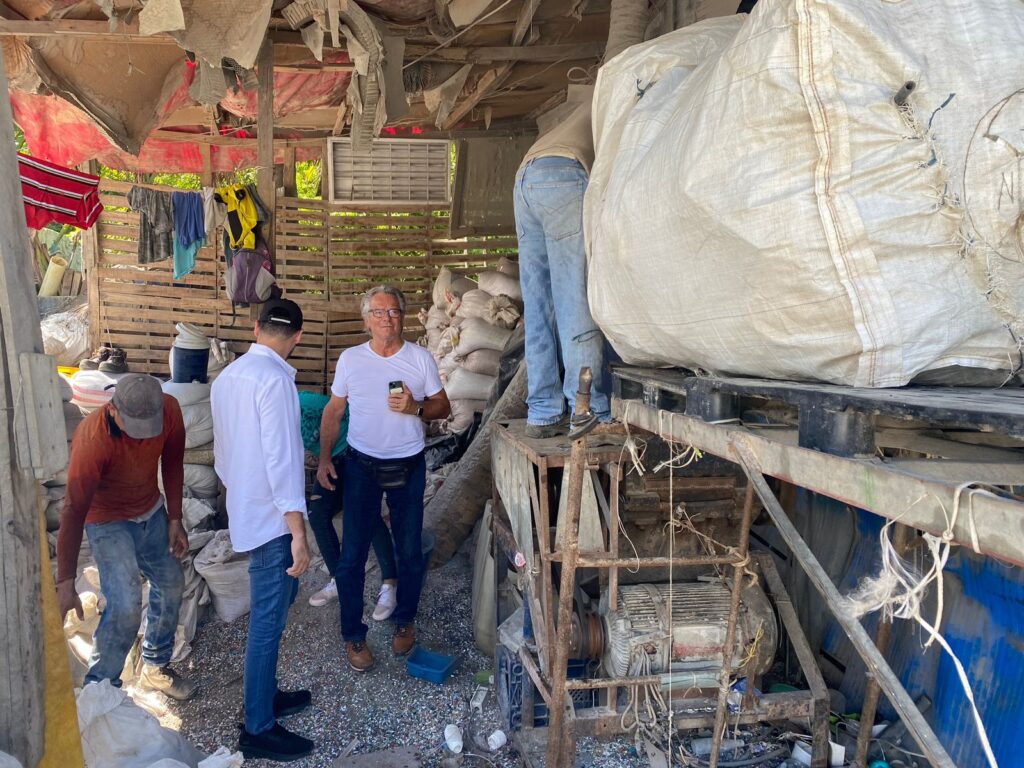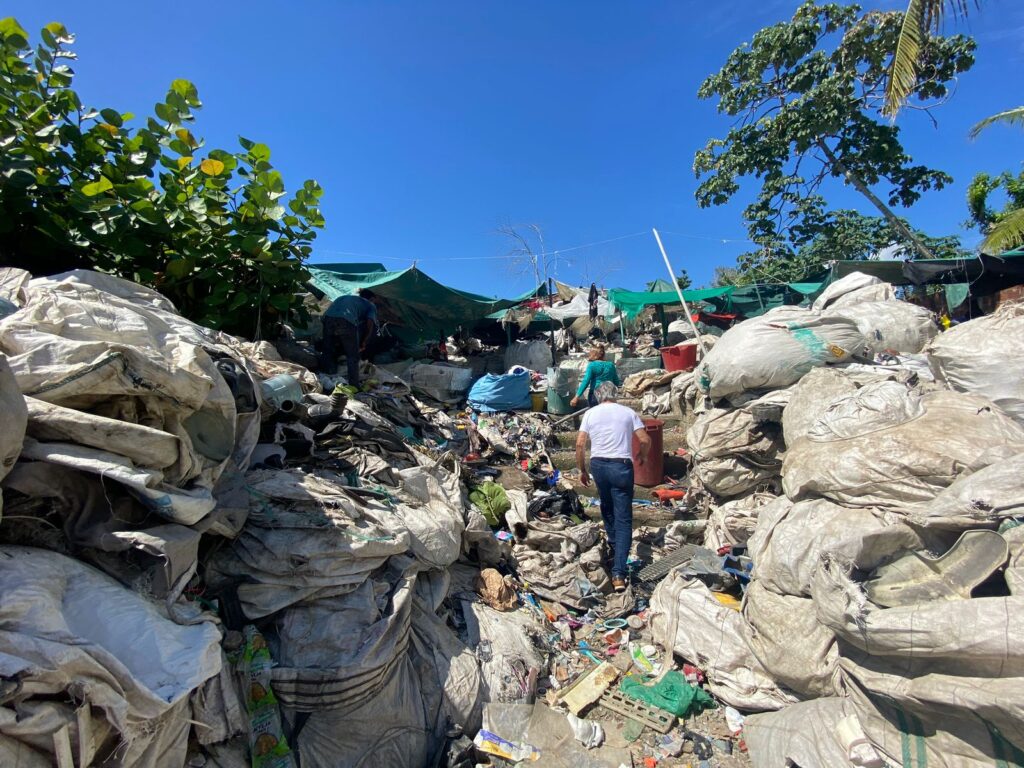
Ulrich Frei isn’t inherently opposed to philanthropy; rather, he views it as a somewhat blunt instrument for alleviating poverty. Instead, he advocates for a more effective strategy: empower local entrepreneurs with the skills and knowledge necessary to develop their businesses and create shared value.
This is the mission of FUNDES, founded in 1984, by Swiss industrialist and philanthropist Stefan Schmidheiny. The organization aims to improve the competitiveness of micro-, small– and medium-sized enterprises (MSMEs) across Latin America and create a burgeoning middle class in the region.
“The biggest threat to social stability in Latin America is this huge gap between the rich and the poor,” explains Frei, who has served first as Executive Director and then as a board director of FUNDES for the past 16 years. “Our main goal is to create value, by helping small businesses grow, lifting their owners from – in some cases – extreme poverty, into the middle classes.”
According to the Inter-American Development Bank, Latin America remains one of the most unequal parts of the world. In Colombia, Chile, and Uruguay, around 1% of the population controls between 37 and 40% of the total wealth, while the poorest half of the population owns just one-tenth of the wealth.
Before moving into social impact, Frei had a globe-trotting career at Swiss pharmaceutical giant Ciba-Geigy (later Novartis) working in Chile, Indonesia, Hong Kong, China, Africa, and lastly Venezuela where he served as country president.
He left Novartis in 1999 and set up a consultancy advising small and medium-sized companies on their succession planning. But in 2008, aged 55, he decided he wanted to devote the rest of his working life to doing something more meaningful.
He was approached by FUNDES who was looking for someone who could lead he the transformation from a purely philanthropic organization into a profit-orientated but mission-driven entity. FUNDES board of directors gave Frei five years to make FUNDES self-sufficient or to find an alternative sponsor with deep enough pockets to keep the organization running.

From philanthropy to profit-orientated
Frei quickly realized that to sustain FUNDES for the long term, it would have to start charging for its services. He came up with a new business model which targeted the large multinationals operating in the region as customers.
His thinking was shaped by a seminal article on shared value by Michael E. Porter, a competitive strategy expert at Harvard Business School, and Mark R. Kramer from the Kennedy School at Harvard University. They argued that for long-term survival, organizations must enhance their competitiveness while simultaneously improving the social and economic conditions of the communities they serve.
FUNDES asked the firms about challenges in their value chains and provided solutions. For example, it trained 800 organic banana producers in Costa Rica to become reliable suppliers for global companies like Nestlé, Unilever, and Kraft. It measures impact in terms of hard figures such as the percentage increase in sales, but also on softer outcomes, such as rates of domestic violence, or whether more children are enrolled in school than before the project began.
As part of the transformation, Frei also changed the legal structure from a foundation to a limited company and revamped the organizational structure to make it more centralized. It now operates with three hubs: Mexico, Central America the Caribbean, and South America, and had an annual turnover of around $14 million in sales from 12 countries prior to the pandemic.
Yet the impact of the COVID-19 crisis was devastating for FUNDES as companies cut back on corporate social responsibility (CSR) spending. Sales more than halved to $5 million and the organization was forced to lay off staff.
Since 2022, it has rebuilt with a bigger focus on digital content and now has a business volume of around $10 million across 17 countries with 130 people on its payroll, and a further 400 acting as consultants. It has also spun out a startup incubator, Fundamental, with a mission to invest in 10 for-profit ventures by 2028 that tackle Latin America’s fundamental challenges.
It is currently supporting five startups – ranging from Voalá, a franchise and community-powered marketplace for female-owned beauty salons in Guatemala to Reciclamos Juntos, a Colombia-based waste collection service that works with more than 680 waste pickers to transform PET bottles into materials for plastic products.

An accidental MBA
Frei trained as a chemist and didn’t complete a traditional Bachelor’s or master’s degree at university. He admits he still doesn’t know how he got into the MBA program but was encouraged and supported by Ciba-Geigy to go.
When he arrived in Lausanne, Frei had rudimentary English which he had learned working on a construction site in New Zealand while backpacking. Yet despite his limited English, he recalls that the most challenging part was learning to work in groups.
His biggest takeaway from the program was perseverance, something that has proven crucial as he navigates the ups and down of operating in Latin America. The rise in the number of autocracies worldwide is also complicating the picture. FUNDES used to operate in Nicaragua and Venezuela but has since been barred by governments that are suspicious of the work done by non-governmental organizations (NGOs), he explains.
Frei’s solution is to broaden FUNDES’ footprint to include 17 countries across Latin America and the Caribbean. Despite the challenges, Frei remains ebullient. “I have never enjoyed working as much as I do now,” he says.
Five heart projects
Alongside his work at FUNDES, Frei says he has four passion projects which he calls his “beating hearts”. These include a brewery founded with friends in the Swiss town of Solothurn, a home for 1,200 children with Down’s Syndrome in Cartagena, Colombia, a home for the elderly which he is building with his brothers in his hometown of Frauenfeld, and an annual fundraising campaign to collect CHF 1 million for scholarships in South America (Fundación Educación).
After 16 years at the helm of FUNDES he is handing over the reins to a new Executive Director and will step down fully by 2025. Until then, he says his salary is “what I see when I visit the projects.”
Ultimately, he believes the most successful social impact work comes down to instilling a sense of dignity.
“You don’t see the progress in projects by the size of the small business owners’ wallets. You see it in their eyes,” he explains. “They want to have two shops rather than one. There has been a switch from the mindset, ‘I have to do this to put three meals a day on the table,’ to ‘I want to do it.”

